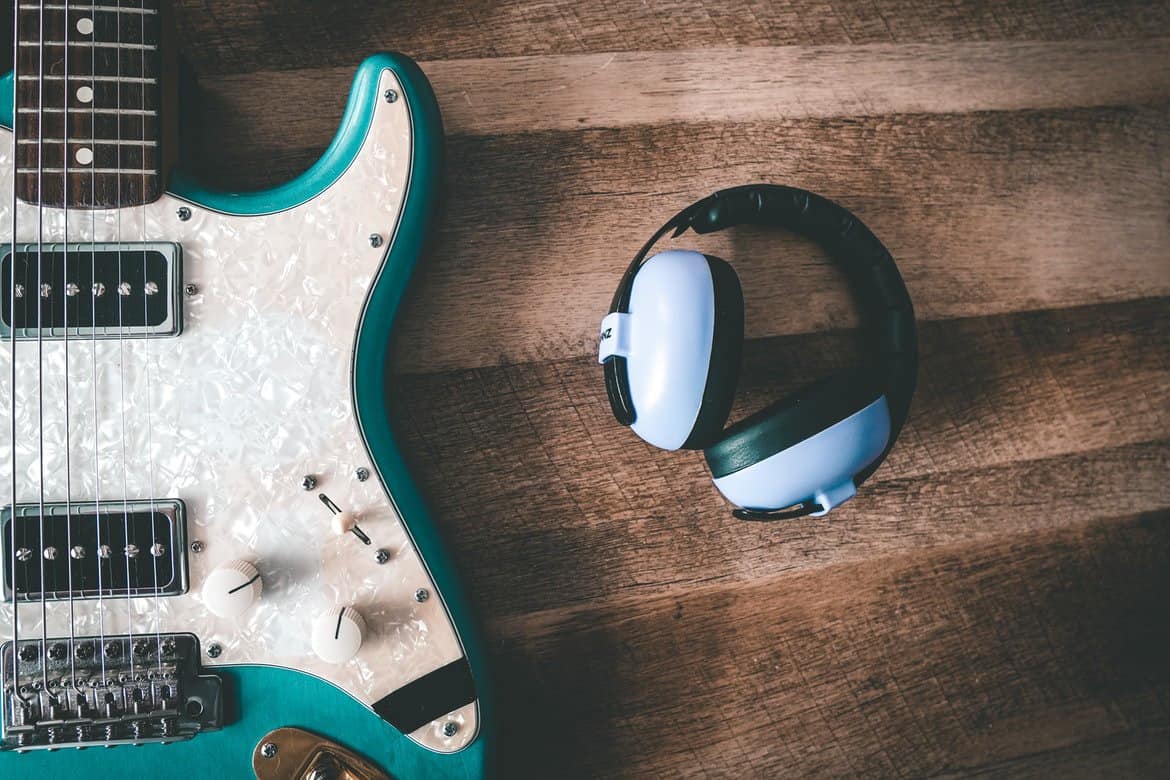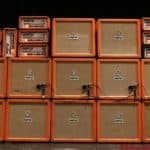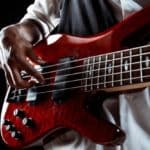Have you ever been in a small room with a drumkit and a heavy hitter drummer?
Perhaps that’s why you are here.
After a few minutes of exposure to such stress, your ears might start ringing, and you might even leave the practice with some temporal hearing loss.
Is it something to worry about?
Should you start wearing earplugs to band practice?
By all means, if you practice with a loud band, with a drummer, and/or high output amps you should consider getting ear protection. Most professionals use headphones or in-ear monitors that dampen the acoustic pressure to which they are commonly exposed, but if that’s out of reach, any earplug will work.
In this article, I will walk you through everything you need to know about how to protect your ears when you are rehearsing with a loud band.
After leaving this page you will have a clearer idea of what to do, and how to prevent long-term irreversible damage to your hearing.
Are you ready to get started?
Let’s go!
Are earplugs necessary at band practice?
Earplugs are absolutely necessary if you feel strain on your ears after a session, but even if this doesn’t happen, they would be a nice prevention mechanism for the future.
You see, our ears are rather sensible to loudness, and extended exposure to extremely high volume sounds such as those natural in a band practice might produce permanent conditions such as tinnitus (constant ear ringing) or hearing loss.
Always take extra care of your hearing, even if you don’t consider it a risk today, a few years down the road it might creep up on you.
When should you wear earplugs at band rehearsal?
My advice is to put on your earplugs as soon as your drummer start hitting, or the amps begin to get cranked.
It will be uncomfortable at first, and might even take some time to get used to, but it’s absolutely worth it.
It’s a health matter.
However, if your band doesn’t have a drummer, and you rehearse at spoken voice levels, you could be exempt from using any protection.
In any way, most professionals nowadays use in-ear monitoring systems that act as de facto earplugs, blocking most sound from the room, and only hearing what their mix engineer sends them, at safe volumes.
This is absolutely the way to go, and the safest.
Why is it recommended to wear earplugs when rehearsing?
Although earplugs are uncomfortable, the risks of hearing loss and other ear conditions are way higher for musicians due to the unhealthy reality of rehearsal rooms.
Small places with loud sound outputs are not likely recommended by any doctor and even less if you are not wearing appropriate protection.
Avoiding exposure to unnecessary loudness will increase your quality of life with time, especially if you plan on keeping playing music 10, 20, or 50 years from now.
Think long term, be responsible.
What could happen if you don’t use earplugs at band practice?
Not using appropriate protection at band practice can lead to what’s called “Sensorineural hearing loss”.
This is damage to the structures of your inner ear and is the cause of 90% of hearing loss in adults.
Prolonged exposure to sounds louder than 85 dB can harm the small hairs within your ear that translate vibration into sound.
Band practices can easily get up to 100 to 105 dB, so we are way above the threshold.
The most common symptoms for Sensorineural hearing loss, as Healthline states in their article about this topic are the following:
- trouble hearing when there’s background noise
- difficulty understanding high pitched voices
- dizziness or balance problems
- trouble distinguishing high-pitched sounds
- hearing seeming to be muffled
- tinnitus (ringing in your ears)
Would any earplugs work for band practice?
Yes, any kind of earplug will work as prevention.
There are many alternatives, and each will offer varying protection. It will be up to you to find the sweet spot to what’s comfortable for your playing.
Swimming silicon earplugs are rather comfortable, but even over the head hearing protection will work wonders, and even feel better for you.
Maybe you need to pay a visit to your closest Home Depot and try out your alternatives there.
Should you wear earplugs also while practicing at home?
If you live at a normal home, where there are neighbors or family members that will tell you to turn it down if you get carried away with your playing volume, I don’t think hearing protection is necessary.
I encourage you to practice loud enough to hear your, but not louder than a spoken conversation.
It will be better for your ears long-term and also allow you to practice for longer without getting tired.
There are really no downsides to taking care of yourself if you think it through.

Hello there, my name is Ramiro and I’ve been playing guitar for almost 20 years. I’m obsessed with everything gear-related and I thought it might be worth sharing it. From guitars, pedals, amps, and synths to studio gear and production tips, I hope you find what I post here useful, and I’ll try my best to keep it entertaining also.





